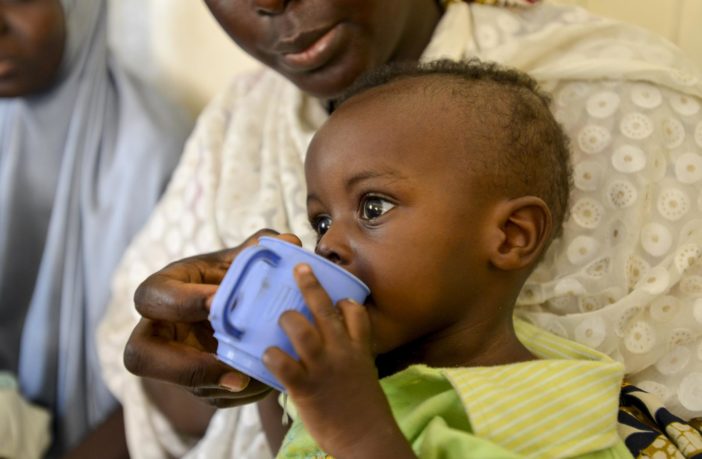Save the Children International (SCI), an NGO, on Thursday said that it had intensified community dialogue and awareness campaign to increase demand for nutrition and health services in rural areas of Kaduna State.
SCI’s Nutrition Advocacy Advisor, Malam Isah Ibrahim, made this known in an interview with the News Agency of Nigeria (NAN) in Kaduna.
Ibrahim said that the measure was to reduce the burden of malnutrition and child mortality in the state.
He pointed out that poor maternal nutrition and health among young women, as well as poor access to health services were among key drivers of malnutrition in rural communities.
He described the low uptake of nutrition and health services in healthcare facilities in Sambam Ward and other wards in Jaba Local Government Area as “very disturbing’’.
According to him, the development is negatively impacting on antenatal care, child delivery, early initiation of breastfeeding, exclusive breastfeeding and complementary feeding practices with accompanying consequences on healthy growth and development of children.
Ibrahim said that to address the problem, the NGO had recently supported a community dialogue and awareness campaign at Sambam Ward to improve the uptake of nutrition and health services in the area.
The advisor said that the dialogue was part of strategies to address the scourge of malnutrition, which was closely associated with poor health status of women and children.
He said that the goal was to get community members and relevant stakeholders in the area to look at the low patronage of healthcare facilities during child delivery in the community.
“The meeting was particularly designed to build a common understanding in promoting individual, family and community action that would improve maternal, infant and young child nutrition in the community.
“Such dialogue provides the opportunity to raise awareness and understanding about critical nutrition-related health issues and mobilise support for action,” Ibrahim said.
He said that responses during the meeting showed that the women were not often motivated to access health services in government facilities because of the cost, attitude of health workers and transportation cost.
“For example, some of the women identified physical and emotional abuses by health workers as barriers that discouraged them from patronising public health facilities for delivery.
“They also identified non-availability of health workers to provide 24-hour services and high cost of the services even when available.
“The women particularly appealed for the recruitment and redeployment of health personnel from urban to rural areas where their services are highly needed.
“This is a good feedback that will enable policy makers take necessary action,” he said.
Ibrahim added that the women were sensitised on the importance of optimal and appropriate feeding of children under two years, through early initiation of breastfeeding and exclusive breastfeeding practices.
He described optimal and appropriate infant and young child feeding, access to health services and childcare as “essential elements for the prevention of malnutrition, illness and mortality among children in the state’’.
“High rate of malnutrition pose significant public health and development challenges for the state and the nation in general.
“Stunting for example, in addition to its increased risk of death, is also linked to poor cognitive development, low performance in education and low productivity in adulthood,” Ibrahim said.




